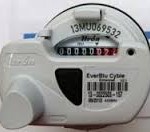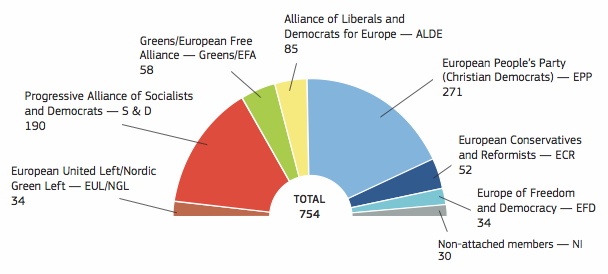My experience of vindictive Garda abuse of power twelve years ago in January 2002
6th of July 2001
I was sitting outside the Gingerman Pub in Fenian Street deciding whether to have a beer or not. My car was parked about twenty metres away outside the Telecom offices. I got a call on my mobile from a Garda Declan O’Rourke to say that my car had just been broken into and my Laptop bag taken. He knew this because he was at the other end of the street and saw it happen. He said that the thief had gone into the nearby flats and I believe he said that he knew who it was. I left and drove the car home, feeling a bit stupid for leaving the bag behind the drivers seat in the first place, especially seeing as the reason the police had my number was that my car had been broken into on the same street (outside the Telecom’s offices) during the day about a year previously. I had the window fixed the next day and forgot about the incident.
About a week later Garda O’Rourke called to find out the value of the property stolen. IR£80 for the laptop bag and IR£80 for an electronic organiser which was in it. He said they had arrested the guy who broke into my car. They did not retrieve the bag
Thursday night the 3rd of January 2002 9:30 PM (6 months later)
There is a very aggressive ringing on my doorbell. I opened the door to find Garda O’Rourke and another Guard standing there with a very intimidating and aggressive attitude. He hands me an envelope and says This is a summons for you to appear in court on the 23rd as a witness” No, “good evening” or “sorry to bother you” I enquired for what and was told that it was as a witness for the prosecution in the case against the guy how broke into my car. I asked him if my bag had been recovered, considering that he had seen it happen and knew who did it. He said it hadn’t been recovered. At that point I asked why I should waste my time going to court when I wasn’t going to get my property back and it was very likely that the guy would get off anyway. I also pointed out how amazing it was that Mary O’Rourke’s property was recovered within minutes when her house was broken into around the same time. “You’re not Mary O’Rouke” was the response. I said that I wasn’t certain that I would have the time to turn up, at which point his sidekick took a step forward and told me that, “if I didn’t turn up I would be arrested and jailed”. I closed the door and thought “ Now there’s one for the books, my car is broken into, my property stolen and “I go to jail”….. only in Ireland !” I decided that I would turn up, mainly to complain about the manner in which the summons was presented and the attitude of the Guards who presented it.
On Tue 22nd January an important meeting, which I was to attend at 4:30PM was cancelled and rescheduled for Wed morning the 23rd at 9:30. I went to the meeting which went on until midday, got to my office at 2:00PM had a very busy afternoon and also a hectic Thursday, as I was going to the UK on Friday for the weekend. Monday 28th I opened my briefcase and found the summons. “Oh Shit, I forgot all about that”
Tuesday 29th January
I made contact with the Courts and was advised to write in an apologise to the Court and explain why I didn’t turn up.
Wed 30th January
6:20AM I am woken by the sound of my doorbell ringing incessantly, my first thought was that there was an electrical fault and that the ringer was jammed. It took me about two minutes to wake up, get out of bed, find a pair of jeans and go down to investigate. Doorbell ringing all the while. Got downstairs and could see that there were Guards at the door. I opened the door to be confronted by four uniformed Guards, including the two who had been there previously, in what I can only describe as” ready for action mode” (two of them had their hands on their batons) Garda O’Rourke informed me that he had a warrant for my arrest and that I should go get some clothes on. I said “ You might as well come in then” They filled the hall. I went upstairs, phoned my solicitor but couldn’t get through, shaved and ironed a shirt. I phoned my daughter, told her what was happening and asked her to make contact with my solicitor as soon as she could and that I was been taken to Pearse Street Garda station. I came downstairs, said OK I’m ready, “not yet your not” at which point the handcuffs were produced, I was handcuffed and I had to walk cuffed and surrounded by four Guards past my neighbours houses to two squad cars which were outside the security gates of the complex I live in cross parked with all blue lights flashing I was driven to Pearse Street in the back of a squad car and had to walk, still handcuffed, across the rush hour traffic to the back entrance of the station.
At the station there is a Twenty something, probably Romanian, guy with very little English being released after spending the night. He is been roundly abused by the Garda in charge and being told that if he doesn’t sign the papers, admitting his offence, he will go back to the cells until he does. His “crime”, stamping on two half litre milk cartons in South William Street after the night club’s closed. He’s gone, my turn, name address DOB etc, given a copy of my rights, remove belt, and empty pockets. It’s 7:40AM I was brought to a cell, spread-eagled against the wall, searched, remove shoes, door closes. This is a stinking, filthy kip with an open, uncleaned hole in the floor, which served as a toilet, in the corner. I was offered a cup of tea and a copy of the Sun newspaper. ( I refused both)
10:15 AM I’m taken from the holding cell put in a van and driven to Court 50 in Brunswick Street. They forgot to return my personal effects and, as I have never even been inside a Police station before, other then in the front public office for signature witnessing, I assumed that that was the norm. It’s not, my stuff was brought to the court and I got it back after the hearing.
The hearing
My solicitor had made contact with Pearse Street Station and was told that I had already been taken to Brunswick Street. He sent word that he was on the way and asked that the hearing be delayed until he got there with Council. I wasn’t told this, I believe that council for the state, did tell Judge Haughton but he chose to ignore the information. During the time I was waiting for the hearing there was a least six cases where witnesses for the prosecution did not turn up, mostly Guards and the cases were dismissed. I assumed that when I apologised and explained that due to pressure of work, I had genuinely forgotten about the hearing on the 23rd that I might get a bit of a tongue lashing from the Judge and that would be that. I had also intended to enquire whether he approved of the bully boy tactics the Guards used in carrying out his warrants. In fact I was treated as if I was a criminal and started to fear that I was going to get a prison sentence. Not understanding how these things work, unlike everyone else in the room, including the defendant, I ended up being bailed, €25 which I had on me and my own surety for €50, to turn up in court on the18th February and being told that if I don’t turn up I will be rearrested and jailed until the case is heard.
In my life I have had two speeding fines and I think four parking tickets. I have been in business in this city for twenty nine years and the only interaction I have ever had with the police is when my business was, broken into (at least twice a year), vandalised, trucks stolen, being personally assaulted and when my staff were the victims of one of the so called “crime bosses” armed robberies.
MY CAR WAS BROKEN INTO, MY PROPERTY STOLEN, I HAVE BEEN ARRESTED IN AN EXTREMELY AGGRESSIVE MANNER, I HAVE BEEN JAILED, MY PERSONAL SPACE HAS BEEN INVADED AND I AM NOW OUT ON BAIL TO APPEAR BEFORE THE COURT ON THE 18TH OF FEBRUARY !
18th February
I arrive at the court, after some period when the hard to understand procedures have been gone through, there is a discussion between Garda O’Rourke, a representative of the DPP, a barrister representing the state and a solicitor representing the defendant (defendant who broke into my car, that is). He didn’t turn up as the DPP had decided to drop the case, which he obviously knew. The case was dismissed by the Judge. I’m sitting there not knowing what had happened and had to ask another Garda who was sitting beside me what was going on. Nobody even had the courtesy to tell me that the whole thing was over. I met Garda O’Rourke on the way out and he asked me if I would like him to explain what happened……. I left. Never did get the bail money back, wouldn’t even know how to go about that.
Apart from my obvious annoyance at all this, it seems to me that the amount of police, (Two squad cars and four Garda) and court time wasted on this whole episode, was way out of proportion to the smash and grab crime committed by the drug addict who broke into my car. I have a suspicion that my treatment was because I had the temerity to question Garda O’Rourke.
Current comment on the above
The above was actually written at that time when it was fresh in my memory. I had intended to make a complaint but decided against it, precisely because of what has come out in the open regarding the treatment of anyone who complains about a Garda.
This episode still rankles with me in the way any personal assault would. The problem of course is that, as most people have always known, if you complain about a Garda you will probably regret it. The current cases coming out into the open are probably just a tip of the iceberg as most people who have suffered abuse at the hands of An Garda Síochána just have to put up with it.
 There are a significant number of this 700,000 who, with the acquiescence of the planning system, decided to build their detached little “South Fork” pastiche home up on “The Hill” or down the winding “Boreen” as far away from their neighbours as possible. Of course they now expect to have all public services provided by the taxpayer, including a Hospital or a least an Ambulance at the end of their winding driveway.
There are a significant number of this 700,000 who, with the acquiescence of the planning system, decided to build their detached little “South Fork” pastiche home up on “The Hill” or down the winding “Boreen” as far away from their neighbours as possible. Of course they now expect to have all public services provided by the taxpayer, including a Hospital or a least an Ambulance at the end of their winding driveway.





